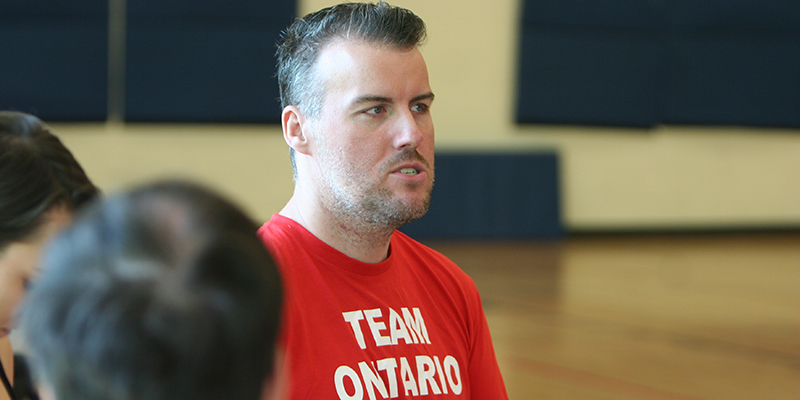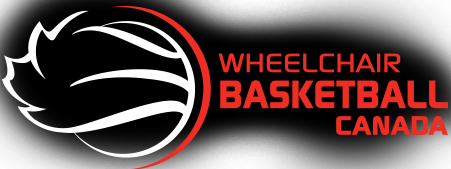
Chris Chandler learned early on that his success in Wheelchair Basketball wouldn’t be as a player and pivoted to coaching. Twenty years later, Chandler still enjoys the development side of the game with the Burlington Vipers organization.
Chandler aspired to play Wheelchair Basketball on the national team like every player his age. Born with a C-5 spinal fracture, Chandler said he hated individual sports growing up.
“I was so nervous before individual sports,” he said. “I wouldn’t quite throw up, but I was terrified. I hated it so much. Then when I got on the basketball court, I just didn’t have that feeling anymore, so I was like, ‘this is this is way better.’”
Chandler quickly learned that his success as a player might be short-lived after a conversation with his first coach.
“He just said when I was a kid that I’d be on the national team by the time I’m 18 if I can use my arms because I’m a quadriplegic,” Chandler recalled. “I was like, ‘huh, alright.’ He turned out to be right, I couldn’t make the national team as a player. I got that pretty early on.”
With his focus switched to coaching, Chandler emailed Paul Bowes about getting involved. Chandler joined the men’s national program as the team’s statistician for the 1997 nationals and observed Bowes from the bench.
“Paul Bowes was my biggest mentor,” Chandler said. “He took me under his wing when I decided to start coaching and Mike Frogley as well. The two of them were big influences. I started coaching when I was in my late teens, and they were huge for me.”
Over the years, Chandler developed a reputation for being relentless in pursuing potential athletes for the Vipers program.
“It’s non-stop,” he said. “I’ve seen articles on people just got hurt in the newspaper, and I get a hold of them through Facebook or emails or occupational therapists – I’m relentless. Honestly, I’m relentless.
Current women’s national team member Melanie Hawtin is an athlete who experienced Chandler’s recruitment tactics firsthand.
“There’s a picture floating around of her, she’s probably six-years-old and I’m in Grade 10 or nine, and the joke is I was talking Wheelchair Basketball with her,” said Chandler. “She was a big track person. She got pretty far in track, but I was like, ‘what are you doing track for? It’s boring, you turn in one direction.’ Then she got an injury in track, and she couldn’t sit properly anymore, so I was like, ‘hey, let’s go. Let’s do this.’
“She has been playing since she was a kid, but recreationally. Occasionally on the Vipers. She always says she started with Wheelchair Basketball when she was 25, but there are pictures of her in a Vipers’ jersey when she was 15. It took almost 20 years to commit the basketball and I keep telling her I was right.”
These days the 44-year-old enjoys the development side of coaching with the Vipers.
“We’ve got a bunch of great young athletes, and I’m loving seeing them blossom into just really solid people,” Chandler said. “Never really cared about winning or losing. It’s nice, don’t get me wrong, it’s nice, but basketball is more than that. It’s about getting into the gym, talking to people, and just enjoying the game. I love practice, to be perfectly honest. I love going to practice, creating a plan watching the players do it, and getting better. I think that’s what I really love.”


